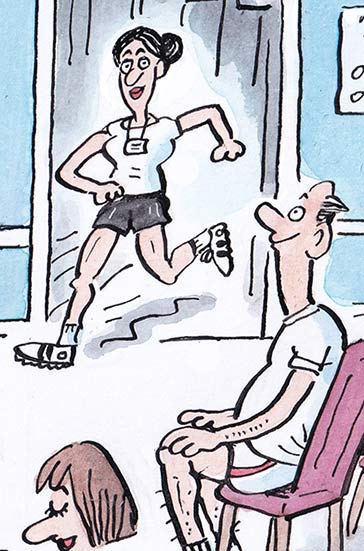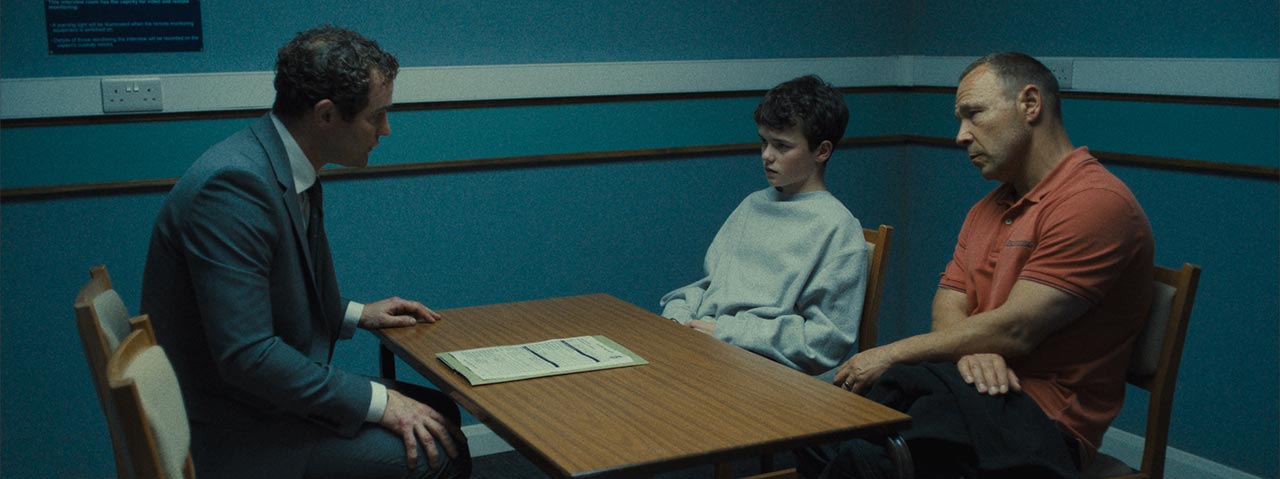

A milestone for parkrun practices
Dr Rebecca Foljambe considers the dangers of social media and screen time – and argues for a public campaign about it.

The recent Netflix miniseries Adolescence is a brutal and earth-shattering watch, yet every teenager I’ve asked about it has shrugged and said something along the lines of ‘yeah it is a bit like that.’ The fact that this incel and misogynist online culture is propagating our young people’s lives, particularly young men, is bad enough, but the fact that children are resigned to it should horrify us. Not least because this series features one young teenager (‘Jamie’ is 13) murdering another.
The brilliant CSJ report Lost Boys – State of the Nation (external PDF) is an essential read for anyone working with or parenting boys. Jamie’s situation sits neatly within the dreadful statistics featured. It explores the impact of technology and social media on young men with stark clarity: 97% of children aged 12 now have their own smartphone and the average age at which children first see online pornography is 13 - a quarter by age 11 (27%). Boys are far more likely than girls to watch porn every day (25% compared to 2%). This very comprehensive report goes on to explore what these boys are watching. ‘Analysis from the last decade suggested that, of the best-selling pornographic videos, 88 per cent contained acts of physical violence (e.g. spanking, gagging or slapping), half contained verbal aggression, and women were almost always the targets – where performers expressed pleasure in response to the abuse 96 per cent of the time.’
Back to Jamie, alone in his bedroom late into the night. Bedroom screen use by children has been robustly evidenced to increase the chances of children accessing inappropriate media. In the programme, Jamie’s mother felt too nervous to invade her son’s privacy at 1am to get him off his computer. She spoke to him from behind a closed door. ‘He never answered, just silence.’
Maybe, Jamie was playing GTA (Grand Theft Auto). In the latest version of this game a player can purchase a prostitute then murder her. This game is rated 18, but Statista reports that 71% of those who first played GTA did so when they were below 18 and 20% when they were 11 or younger.

Then after another night of inadequate sleep, Jamie goes to school where smartphones or screens in lessons are omnipresent, and well-intentioned but overwhelmed teachers attempt to manage the chaos. Even the headmistress has never heard of Andrew Tate, or incels. We also know that murdered schoolgirl ‘Katie’ had been cyberbullying Jamie, implying with a single emoji that he was an ‘incel.’ This challenged his already fixed false beliefs of what a ‘real man’ is, with cruel precision. It is very easy to see how this sort of deeply insidious and subtle language of abuse would bypass even the most loving of parents.
Adolescence accurately portrays that it is the most vulnerable children who are the worst impacted by these devices (external PDF). Two alarming examples of this are the dramatic rise in young men recruited via social media to county lines (external PDF) and the increasingly high number of children and young people being arrested for terrorism offences (external PDF).
So what does this have to do with GPs and general practice? It is commonplace for us to ask young people about their sleep, happiness at school and home, alcohol or drug use, and ideas of self-harm or suicide. Indeed, the latter is an essential component of a safe mental health consultation. (In my training we failed vivas if we didn’t ask about this). Research shows that the average 12 year-old spends 29 hours a week (external PDF), equivalent to a part-time job on their smartphone, and over a third of adolescents report continuous online contact (external PDF). Yet how many of us are routinely asking about screen use in our consultations with young people?
By asking about screen use in a child’s daily life, we can explore the extent of any disturbance to sleep, mood, education, attention and relationships, or any exposure to harmful content. Health Professionals for Safer Screens are calling for an urgent NHS public health campaign on this issue, with visible-to-all, consistent guidance for potential and existing parents and those working with children. There is currently no specific NHS guidance for parents on children’s screen use. However, a key area of quality improvement that we can all action now, with no other guidance or government instruction, is to ask about screen use in every child and adolescent consultation.
See a child. Think screens. Please take a look at our resources and guidance for children’s screen time. Or our short educational video around online porn harms. We also have a new clinical training tool for GPs to help them screen for problematic smartphone use in consultations, alongside family plans, and other useful resources.
Dr Rebecca Foljambe is the founder of Health Professionals for Safer Screens and a GP in Whitby
Thank you for your feedback. Your response will help improve this page.